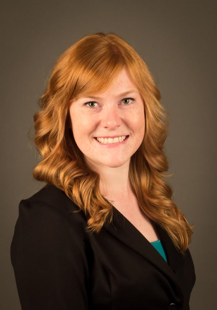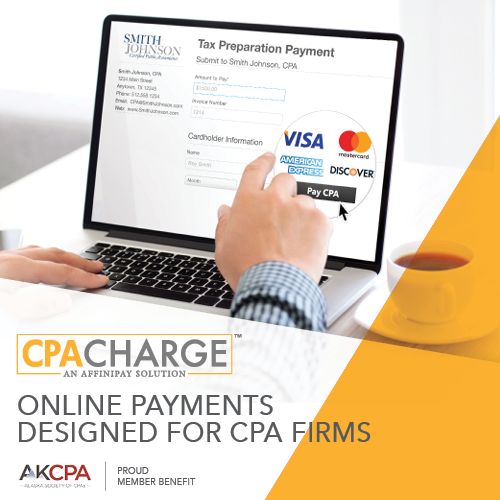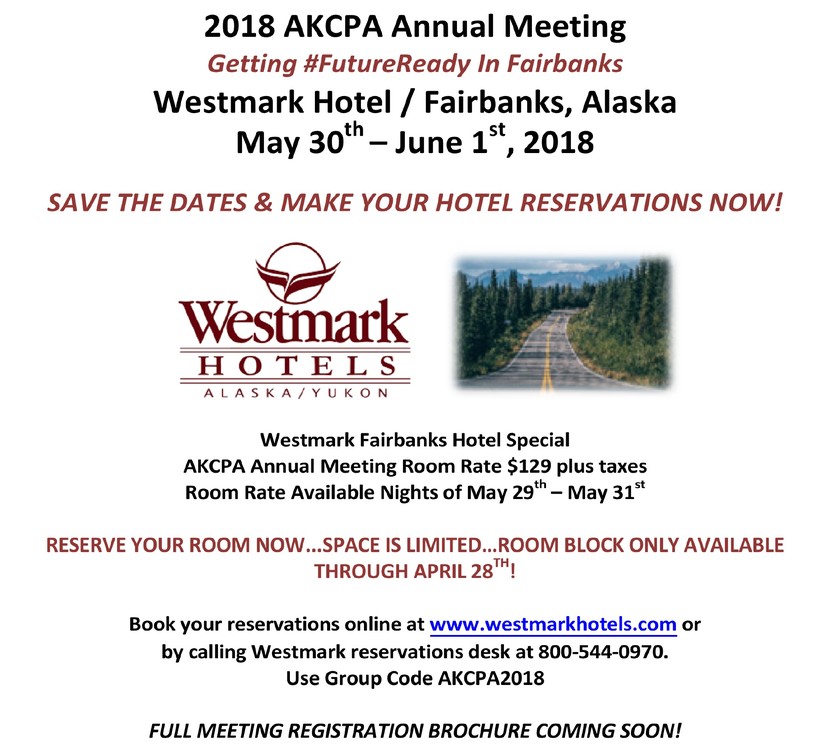Winter 2018 Newsletter

President's Message
WINTER 2018
Embracing Change, Again…
“Embrace change”. Such a weighty concept. It’s a phrase I have heard numerous times in my career, and I admit in many ways this an area where I have struggled times. I am not an automatic embracer of change – it doesn’t come natural to me. I will never be that person who feels the rush of excitement when someone suggests I should “embrace change”. Maybe there have been a few unpleasant experiences that have colored my judgement. If you’ve ever had the pleasure of experiencing an office remodel, or a software conversion, maybe you can sympathize. Sometimes change is painful.
On the other hand, I do love a challenge. That is what attracted me to the profession, and for me is a significant factor in my “job satisfaction”. As accountants we are all aware of the variety of opportunities for facing challenges in our profession. Business and governmental environments evolve, new regulations and accounting requirements are established, technology advances, and our roles are revised and adapted to adjust to new expectations.
2018 is shaping up to be an exciting year of change in whatever facet of the profession you are employed. Over the next several months affected private companies will be finalizing preparation for implementing accounting and presentation requirements for FASB’s new revenue recognition standard (required to be implemented for periods beginning after December 15, 2018 for nonpublic companies). Nonprofit organizations will be facing implementation of accounting standards updates which will change the presentation and disclosure requirements of their financial statements (for periods beginning after December 15, 2017). Those in the governmental sector will be working through the implementation requirements of GASB Statement 75 which will involve new recording and disclosure requirements for OPEB plans. And just to be certain no professional (or individual) stone is left unturned, virtually everyone is affected by the changes instituted via the Tax Cuts and Jobs Act of 2017 (TCJA).
Apparently, it will be a busy year. Some may see this as an excellent time to fill out retirement paperwork and start the process of packing boxes in preparation for an extended stay in that second home. For those of us who aren’t ready to call it a day, 2018 will be a year of opportunity for new professional challenges, and to a need to “embrace change”, again. So Happy New Year and welcome to 2018 - It is an exciting time to be a CPA!
Kara Moore, President
Legislative Update - HB147
Your AKCPA leadership and the legislative committee worked very hard over the past year to provide feedback to the State Board of Public Accountancy on proposed statute changes contained in HB147. On January 31st the AKCPA submitted a letter of support HB147 Letter of Support to Rep. Steve Thompson for the current version of this bill.
Please consider reviewing the current version of HB147 and writing a letter of support. Current Version of HB147: HB147. Letters of support for HB147 should be addressed to Representative Steve Thompson, Alaska State Capitol, Rm 500, Juneau, AK 99801. Letters to Rep. Thompson may be emailed to Lynette Bergh at Lynette.Bergh@akleg.gov.
A Journey Through the CPA Exam
By AKCPA Member, Amy Isaacson

Amy Isaacson was born and raised in Fairbanks Alaska and attended the University of Alaska Fairbanks (UAF) where she received her Bachelors’ in Business Administration Accounting and will be graduating this May with her Master’s in Business. She is a full-time staff accountant at Cook & Haugeberg LLC in Fairbanks.
My CPA journey started when I purchased my first set of CPA review materials in October of 2015. I still remember receiving my materials in the mail. My package came with a complimentary bag of coffee and a coffee cup, telling me long hours of studying were ahead. Over the course of my journey, I purchased a few different review materials. There is a list to choose from and I found that for me, one review material did a better job of going into concepts and topics, though another could hold my attention longer and was fun and entertaining. All the CPA review materials vary in style and choosing a study material that fits your study style is important to passing the CPA exam.
The CPA exam consists of four sections, FAR (Financial Accounting and Reporting), BEC (Business Environment and Concepts), AUD (Auditing and Attestation), and REG (Regulations). These four sections can be taken one-at-a-time during the first two months of each quarter. The third month of each quarter is called a “blackout month”, where an exam can only be taken within the first ten days of the month.
To qualify to sit for the exam in the State of Alaska, a student must be 18 semester hours away from their bachelors and have already completed 15 semester hours in accounting. Once able to qualify, the student may apply by going to the CPA Central website. One tip I inform students who ask me about the application process in Alaska is to have patience. The application process usually takes a couple of weeks to a month for processing. If it is taking longer than a month, more than likely NASBA has not received all required documents such as the student’s official transcripts. It is the applicant’s responsibility to send these and they can be forgotten; I did!
Once approved to sit for the exam, you’ll receive what is called a Notice to Schedule (NTS). You will receive one for each of the four sections. The NTS will be used to schedule your exams on the Prometric website. Note, your NTS expires 6 months from the date you receive it. Which means you must take the exam you purchased within 6 months or it expires, and you would need to repurchase the exam again.
After taking an exam, the scores usually take between 2 – 5 weeks to receive back. The AICPA and NASBA do come out with the score release dates for each upcoming quarter that can be easily searched on Google. Knowing the score release dates can help with creating your exam plan. It is very important to have an exam plan. When I first started scheduling my exams, my exam dates would usually be 3 months out. I soon discovered that for me that was not a good way to schedule for the exam. I planned my exams this way four different times and failed each one! I’ve found that having too much time to study could mean that you won’t study until last minute, rushing and cramming and more likely to fail. These exams have a 45 – 50% passing rate. By the time I got the hang of planning my exams, I would schedule my exams 1 – 2 months out, no longer than that. I passed my exams by scheduling FAR 2 months out, BEC and AUD, about 1 month out, and REG between 1 – 2 months.
These exams are no easy task to pass. They are difficult and take a significant amount of time and dedication to pass all four sections. Professors and advisors at UAF are very good at informing students of the dedication needed for studying in order to pass these exams; heed their advice! I spent many days and nights studying; studying at least six days a week for three to four hours a day (and that’s in addition to a full-time job).
In 2017, the format of the exams changed. I took BEC and AUD in the old format, REG and FAR in the new format. The new exam format has pros and cons, just as the previous formatted exam. A pro for the new layout is there is now an allotted 15-minute break, where the timer stops. Before, the timer would keep counting down. Definitely take your 15-minute break and relax your mind! A con for the new layout is the questions require more application, critical thinking and analysis. My tip here is to go through most of the multiple-choice questions and task-based simulation examples that is provided with your exam materials at least two times. There are over 1,000 examples provided with most review courses, allowing for a lot of practice. This tip is how I passed each of my tests. If one slacks in applying their knowledge, they are more than likely to fail the exam.
All four exams consist of multiple-choice questions, task-based simulations, and new document review simulations with the 2017 update. A multiple-choice question is fairly straightforward. Task-based simulations (which also consist of document review simulations) are simply large word problems, where a copious amount of information is provided, and you must sort through it all to complete the simulation. Document review simulations are a little more involved, as instead of all information on one screen, there is a second tab, which provides multiple documents to sort through that a typical accountant would see during a workday.
So, what happens once you pass one exam? A timer starts, and you will have 18 months to pass the other three before the first exam expires. Which means you’ll need to retake the first exam if you don’t pass all of the three other parts within the time frame. 18 months seems like a very long time but know that it goes by very quickly. Again, this is where creating an exam plan is so important. I would plan usually 6 months in advance by planning when I would study and when I would take my exam. And I would STICK TO THE PLAN.
In my CPA journey, my last exam was taken within two days before my first exam would have dropped off. The good news is that I passed my last exam! Exam scores are retroactive back to the day you took it, so my first exam did not fall off. Thank goodness! My time and dedication had finally paid off and it felt so very rewarding.
One last tip I’d like to pass off to others is, you may be missing out on fun right now, and studying may not be all that exciting, but once you are done you will have all the fun and time in the world! This was said to me during my journey and I felt it was a good driver kept in the back of my mind that kept me going through all of those grueling study hours. We all know passing the CPA exams will be one of our greatest accomplishments, good luck!
Congratulations to newly licensed Alaskan CPAs: Sara Dennis, Sabra Lamb, Kyle Kirn, Amanda Woodard, Courtney Vandegriff, Carter Ellis, Mariah Ver Hoef, Ashley Beedle, Christopher Lallish, David Murdock & Kevin Ruark!
Do you know of an AKCPA member that should be featured in our Member Spotlights section?! Email details to akcpa@ak.net.

Announcing Our Newest AKCPA Member Benefit!
State of Alaska Board of Public Accountancy Report
Marge Kaiser, CPA – Board Liaison
The Alaska State Board of Public Accountancy met February 12th and 13th in Juneau, chaired by Leslie Schmitz. The Board began the meeting by briefly discussing the vacant public Board member position, and a CPA vacancy that will occur next year. Interested parties, particularly for the public position are encouraged to apply on-line on the State’s website: https://gov.alaska.gov/services/boards-and-commissions/apply-for-a-board-appointment/
The Board’s May meeting is traditionally held in Anchorage, but the Board is considering moving the May meeting to Fairbanks to coincide with the AKCPA Annual Meeting. No decision on the change in venue was finalized, but presumably, if the May meeting is held in Fairbanks, the next regular meeting of the Board, in August, would be held in Anchorage. I extended the Society’s invitation to the Board to participate in the AKCPA annual meeting.
The Board continued its review of unlicensed firms, focusing on a list of companies using the CPA firm industry code. The Board revisited the question of requiring firm licenses for sole proprietors, though the attorney general’s office has previously advised the Board that sole proprietors are not separate entities. The Board seems particularly concerned about the limited number of sole proprietors who are practicing under a “dba”. The Uniform Accountancy Act “UAA” contemplates firm licenses for proprietors, but the licenses described in UAA jointly license the individual and his or her firm.
The Board discussed restrictions on State funded travel to national meetings, such a NASBA, at length. Due to budget constraints, the State will generally only fund one member’s attendance at meetings, and bases its decision to fund travel on the Board’s overall budget and whether the particular Board is running a surplus or a deficit. The NASBA meetings generally have at least 3 different tracks, so one person literally cannot attend all of the sessions offered. Some of the Board members volunteered that they may attend NASBA meetings at their own expense, so that they can be effective NASBA committee members. Cori Hondelero, the Executive Administrator is frequently granted NASBA “scholarships” to attend the meetings, rather than the State funding her travel.
Recent NASBA discussion topics included a broad movement to reduce or eliminate State Boards and Commissions, which has not yet impacted Alaska. The Accounting Board is subject to periodic sunset reviews, during which their effectiveness as a Board is examined and during which a Board could be considered for elimination. The Accounting Board has not undergone a sunset review in several years, nor is a sunset review scheduled in the foreseeable future.
Don Rulien is a member of the NASBA UAA committee. He reported that their committee discussed mandatory reporting, under “NOCLAR” of noncompliance with laws and regulations by CPAs, a pronouncement that originates with the International Ethics Standards Board for Accountants. Reporting of noncompliance would be required to management, those charged with governance or to agencies such as the Internal Revenue Service, if significant noncompliance was discovered by a successor accountant. Don reports that Barry Melancon, of the AICPA is supportive of this mandatory reporting requirement. The State Board did not seem comfortable with the idea of mandatory reporting.
The Board briefly discussed House Bill 328, which limits the use and retention of biometric data. Some members of the Board were concerned that such a bill could be problematic for Prometric, who collects CPA exam candidate fingerprints in administering the exam. Presumably, since Prometric administers the exam in all jurisdictions, the Company is familiar with, and able to navigate the State laws governing biometric data. This bill is fairly newly introduced in Alaska, and has not yet become law.
The revised HB 147, updating statutes governing the accounting profession, was introduced on the House floor on February 2, 2018 by Rep. Steve Thompson. The revision incorporated changes to the statute that the Society requested. The Society wrote a letter supporting the revised bill, and Rep Thompson acknowledged receipt of our support letter in a brief meeting he had with Board members Don Rulien and Jeff Johnson. Don and Jeff indicated that Rep. Thompson seemed quite knowledgeable regarding the contents of the bill, and asked some good questions regarding the revisions made to the original version. Rep. Thompson was interested in confirming that there was now no significant opposition to the revised bill. HB 147 has been referred to the Labor and Commerce committee. The Board thanked the Society for our letter of support, and would welcome additional letters of support to the Legislature.
While Don and Jeff met with Rep. Thompson, the rest of the Board members discussed the continuing project to update and revise the accounting regulations. They discussed whether to work through the regulations chronologically, or whether to ask the State Investigator for input as to which regulations the investigators identified as most difficult to understand and enforce. The Board is interested in partnering with the Society on this process of regulation update.
One topic the Board spent considerable time discussing was the use of the title “CPA-Inactive” or “CPA-Retired”, the latter of which is limited to persons age 55 or older. “Inactive” is an imprecise term, and including an age limit for use of the term “retired” may not be appropriate for accountants today, who may “retire” at a younger age as part of an overall career change.
Finally, because this was a renewal year, the Board spent a considerable amount of time reviewing exam applications, applications for licensure, and CPE audit materials submitted by licensees who were selected from the pool of renewals for audit.
Alaska Practitioner Liaison Meeting
12.05.2017 Practitioner Liaison Meeting Minutes
Altman Rogers & C. Grows With Recent Acquisition
Altman Rogers & Co. Press Release

JUNIOR ACHIEVEMENT VOLUNTEER OPPORTUNITIES
Junior Achievement programs align with common core standards and teach students the value of workforce readiness, entrepreneurship, and financial literacy. Our hands-on, age appropriate curriculum equips students with the knowledge needed to be successful in today’s ever changing global economy.
We have a few different options as far as volunteering goes. Our classes are traditionally served by a volunteer once a week, for 5-12 weeks (depending on which program/grade level) and are scheduled based on the teacher and volunteer's availability.
Our "JA in a Day" events are a little different from our traditional programs as it is the entire school participates in Junior Achievement programs for one day. Elementary programs contain 5, 30-45 minute sessions and each program has curriculum specific to grade level. Students would participate in these programs all day, having no specials or pull-outs (excluding lunch/recess). Depending on school start and end times, it may or may not take an entire day for each grade level to complete the program. Learn more about volunteer opportunities with Junior Achievement!




